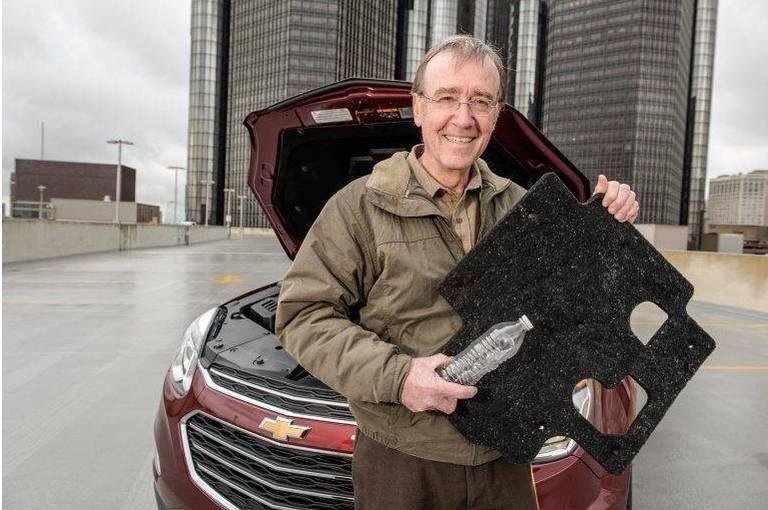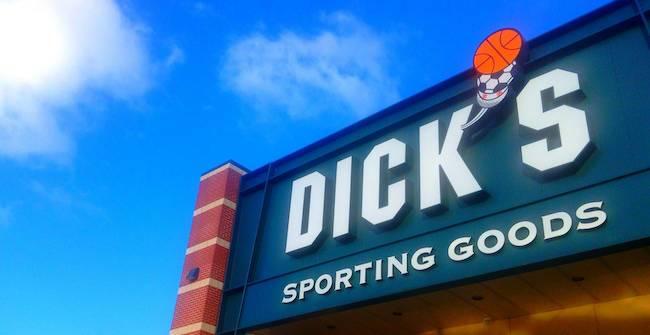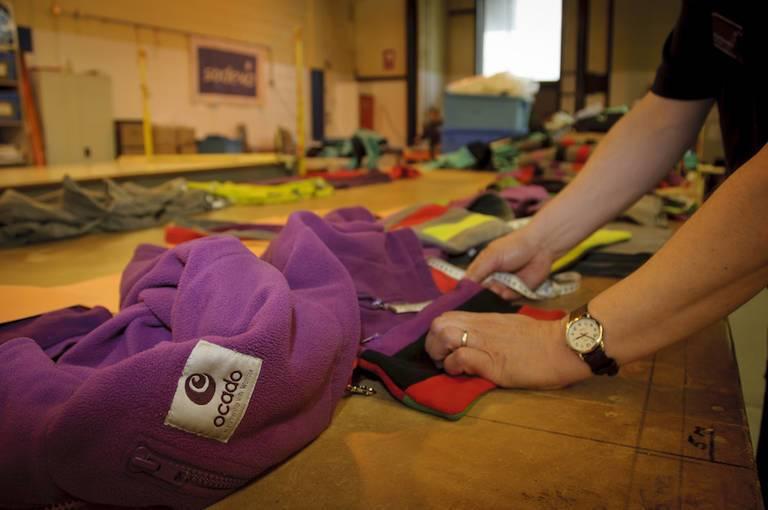GM Says Landfill-free Plants Are Just the Beginning


Back in 1953, when GM CEO Charlie Wilson somewhat famously said, “I've always believed that what’s good for the country is good for General Motors, and vice versa,” he probably wasn’t thinking about the sustainability program the company has come to adopt some fifty years later.
To be sure, the company, like most manufacturers, has done some things that weren’t particularly great for America, particularly with regards to the environment, but this is a very different company today, and a very different America.
Today, there is a great deal of awareness and concern about the environment sweeping through all 50 states (although, apparently not the District of Columbia), and through a great many corporations as well.
General Motors today is one of the leading companies in this realm, with their RE100 commitment to renewable power, their innovative line of electrified vehicles, and their unparalleled commitment to waste-free facilities. Perhaps no one at GM exemplifies their commitment to the sustainable practice of business than their zero-waste guru, John Bradburn.
We spoke with Bradburn this week, whose official title is, “Global Waste Reduction manager,“ on the occasion of GM announcing the addition of 27 newly certified landfill-free facilities, bringing the global total to 142 sites, including both manufacturing and non-manufacturing facilities.
Bradburn, who has been quoted as saying that “waste is simply a resource out of place,” continues to amaze with his creative application of materials and resources, that had previously gone straight to the dumpster.
Whether it’s re-purposing old concrete for new walkways, to cleaning rags for reuse, or donating empty battery containers for use as nesting boxes for wood ducks, Bradburn and his team have an inexhaustible enthusiasm for finding a place for every resource for which no place had previously existed. Their passion extends to the issue of “global turbulence” which Bradburn aims to reduce, while also retrieving some of the stray materials that result from it.
His team has held “zero-waste events” that retrieved waste from the flooded Ohio River (mostly water bottles), as well as old tires from the Mississippi. The water bottles became new water bottles. GM has also used water bottles for air filtration elements to protect workers, sound proofing for vehicles, or insulation to make outerwear for the homeless, the latter done in partnership with The Empowerment Plan. The tires, on the other hand, were ground up to be used to make air baffles for GM cars and trucks.
Two great takeaways came out of the conversation.
First, by connecting up multiple players in these endeavors, which could be any combination of companies, municipalities and volunteer organization, you end up with a supply web, which is far more resilient than a supply chain. While a chain is only as strong as its weakest link, a web is much stronger. Entities like the U.S. Business Council for Sustainable Development’s Materials Marketplace, which GM co-championed, provides a mechanism for those with excess material to connect with those who might have a use for it. In a way, it’s a virtual version of Denmark's Kalundborg Symbiosis.
Second great point: contrary to what you might think, ticking off the number of plants that become landfill-free is not a one and done proposition. Says Bradburn, ”Zero waste created the barometer, but it’s not the finish line.” That’s because there are always better ways that discarded materials can be used. More value can always be extracted, though the value is not always measured in financial terms. Look at the Empowerment Plan, where discarded plastic and water bottles are converted into insulation, which is sewn into coats and sleeping bags for the homeless, by people who are homeless, who now have jobs and are learning invaluable life skills. “Zero waste is good, says Bradburn, “but what would it take to be great? The next phase is for the landfill-free plants not to be satisfied with what they’ve achieved.” There are so many dimensions that could benefit from additional value, whether it's human health, the environment, strengthening communities, empowering individuals, building social capital, the list goes on and on.
Pictured above: GM Global Manager of Waste Reduction John Bradburn demonstrates the Chevrolet Equinox engine insulation made from used water bottles from several GM facilities. Photo by Santa Fabio for General Motors.
How Gun Control Is Raising the Bar on Corporate Social Responsibility


Gun control used to be one of those hot political buttons that no savvy corporate manager would take on without good reason, and it looks like those reasons have finally become apparent in the wake of the Parkland, Florida school shootings. Rather than simply advocating for stronger gun control laws, several leading, mainstream US retailers have taken the law into their own hands. Specifically, some established their own minimum age limit for purchasing guns in their stores, and others are also banning certain types of guns.
These measure are relatively mild but they are at least consistent with the common sense restrictions that gun control advocates have long demanded from state and federal legislators. With elected leaders failing to lead on gun control, corporate leaders are willing to step in and fill the gap.
Yes, Parkland is different
Last week Triple Pundit discussed how gun control activists were galvanized after a 19-year-old murdered 17 students at Marjory Stoneman Douglas High School in Parkland, Florida.
Under normal circumstances it would be reasonable to assume that this new burst of activism would be short-lived. Media attention fades quickly no matter how horrific the massacre, and that's why elected officials normally don't move too far away -- if at all -- from their current positions.
However, Parkland is different. Two social trends have combined to make the Parkland case unique. Foremost is the Parkland survivors themselves, who are mature, articulate, and working the levers of social media, television and other forms of modern communications with a persistence unlike anything seen before.
The other factor is the corporate social responsibility movement. In recent years the CSR movement has shed the perception that it is simply a "feel good" public relations exercise. Responsiveness to social concerns is becoming an indicator of sound management, value, and profitability. It's no accident that several of the companies responding to the Parkland massacre have made it clear that they are listening to the student activists and their communities.
Dick's acts on gun control
With Parkland, retailers are beginning to realize that the vacuum of political leadership on gun control has exposed them to a high level of risk, especially where teenage killers with high powered weapons are involved.
That's especially clear in the case of Dick's Sporting Goods. The company seems to have hit its brick-and-morter retail stride and has recently been adding stores at a time when many companies are shrinking, Dick's has much at stake if a school shooting can be traced to its stores.
In fact, the 19-year-old Parkland shooter owned a gun that he legally purchased in a Dick's store in 2017, as the company has confirmed. Though it was not the gun used in the shooting, the close shave proved to be a tipping point for Dick's.
In a public statement, Dick's CEO and Chairman Edward Stack echoes the main point that student activists and their allies have been pounding home:
...Our thoughts and prayers are with all of the victims and their loved ones.But thoughts and prayers are not enough.
Stack also deliberately emphasizes the leading role on gun control that students have taken up, and he frames Dick's new policies as a direct response to their advocacy.
The company stopped selling assault-style rifles in its Dick's stores after the Sandy Hook murders, and now it will remove them from its Field & Stream stores.
In addition, the company will limit gun sales to 21 years and up, and stop selling high capacity magazines (for the record, Dick's has never sold "bump stocks" that modify guns to fire more rapidly).
Dick's has also called for those policies to be nationalized, along with other measures including closing the background check loophole for private sales and gun shows.
Although Dick's expected a backlash, so far the negative reaction has been negligible. Two employees reportedly quit in protest of the new policies, but the company has stated that it is "humbled" by the outpouring of support, including people who have visited Dick's stores with flowers and donuts as well as comments coming in by email, phone call and social media.
Retailers respond in force
Other retailers that responded by establishing their own gun control policies include Kroger. The company noted that it follows all state and local laws for gun sales at its Fred Meyer stores, but stated that the current laws do not go far enough. Like Dick's, the company will now limit sales to 21 and older.
Kroger also stopped selling assault-style rifles in three states several years ago and now it has added Alaska to the no-sale list.
Walmart and L.L. Bean have also joined the 21-and-over list.
On the downside, as of this writing several major retailers are not responding to the student activists. Last week Huffington Post compiled a list that included Bass Pro Shops and Cabela's (Bass recently acquired Cabela’s), as well as Academy Sports + Outdoors.
Camping World is another non-responsive retailer. The company recent acquired Gander Outdoors and it is planning to expand its brick-and-mortar footprint by opening dozens of new Gander Outdoors stores. Apparently the management at Camping World has a different take on risk exposure than Dick's.
Huffington Post also cites three lesser known companies; Hyatt Guns, Gunrunner Auctions and Big 5 Sporting Guns as among those not changing their policies.
Business pressures business on gun control
These companies may not be particularly susceptible to pressure from consumers, but they could face some serious blowback from other businesses.
One example is the major outdoor retailer REI. The company does not sell firearms but it does business with several companies that were recently acquired by Vista Outdoor, which also owns the gun maker Savage Arms.
After "active discussions" with Vista failed to prompt a response, REI announced that it was suspending business with the Vista-owned companies.
REI cited Dick's leadership in its decision, stating that "we believe that it is the job of companies that manufacture and sell guns and ammunition to work towards common sense solutions that prevent the type of violence that happened in Florida last month."
The Canadian outdoor co-op MEC also announced to its 5 million members that it is suspending business with a group of Vista-owned companies, citing the need to "lean in further" on its concept of corporate social responsibility. Although the company has getting pushback from some members, apparently most of the feedback is on the side of common sense gun control. MEC states that it will work to "build consensus around the potential for constructive social impact related to purchasing."
Gun manufacturers are also beginning to feel the pressure from investors. The global investment giant Blackrock has been cultivating a CSR profile, and the Parkland case has made the company take another look at its holdings in the gun industry.
Blackrock recently put weapons makers in its stock indexes on notice that they need to start thinking about safety-based gun control measures. Apparently the warning was not enough, because late last week Blackrock announced that it would offer its clients the option of pulling their investments out of weapons manufacturers.
The firm is also considering alternative indexes that exclude gun makers altogether. According to CNBC, Blackrock may also put its voting power to use, though in general it does not dictate policy to individual companies.
Whither Fedex?
All of this activity represents a second wave of corporate response to Parkland. In the first wave, a number of high profile companies announced that they would drop their discount partnerships with the National Rifle Association.
These included airlines, rental car companies and at least one credit card company, all of which have much to lose if they fail to engage with high school students at the cusp of the 18-34 demographic group.
FedEx has been a conspicuous holdout, and now it is beginning to feel some heat from other businesses. As of this writing, two high profile companies have publicly announced that they are suspending business with FedEx, the talent agency ICM and the production company World of Wonder.
Two is only a trickle, but if the groundswell of support for the student activists continues to grow, the trickle could turn into a flood.
FedEx has lost the opportunity to lead on common sense gun control, and the company doesn't seem willing to make up for lost ground. FedEx issued no less than four statements defending its position in terms of its legal status as a common carrier, without addressing the issue of whether or not its discount policy should be adjusted.
In the fourth statement FedEx engaged in some finger-pointing at rival UPS, which does ship items from the NRA online store. However, the NRA online store does not carry guns, and UPS does not offer special NRA member discounts like FedEx.
The effort to deflect attention may end up doing FedEx more harm than good, so stay tuned for statement number five.
Photo (cropped): Mike Mozart/flickr.
Ocado Repurposes Uniforms Through Unique Partnership


By Tom Idle
This article is sponsored by Ocado and went through our normal editorial review process.
More than a third of us wear a uniform at work. The problem with that is, as with most garments, when uniforms reach the end of their life they are merely tossed in the bin. In fact, a staggering 90% of the 33 million corporate garments given to staff every year end up in landfill. That adds up to 15,000 tonnes of clothing. The cost of waste disposal alone comes to £1.2m in Landfill Tax.
But recycling or recovering old uniforms is not easy. Polyester, the material of choice for most corporate uniforms, is infinitely recyclable. But collecting branded clothing throws up a number of security and brand reputation issues; it is no wonder so much ends up buried in the ground.
Ocado, the world’s biggest pure-play online retailer, has been determined to do something to not only reduce the environmental impact of its staff uniforms – but to do so in a way that directly benefits people too.
More than 5,600 people at Ocado wear a uniform for work each day. When those uniforms are no longer needed, they are sent to HMP Northumberland. There, the garments, which would otherwise have been incinerated, are totally transformed. Unwanted fleeces, trousers and polo shirts are de-branded and turned into raw materials. These are then turned into new products which are sold online, with proceeds going to charitable recycling projects.
“We take the same approach to uniform refashioning as we do with redistributing food waste; we try not to offload our responsibilities on to somebody else,” says Head of Corporate Responsibility, Suzanne Westlake.
Ocado needed a partner that could manage a large volume of material and treat the de-branding process carefully and securely. But it also wanted a partner that aligned with its core values and strategy. “We firmly believe in supporting education projects, and in taking responsibility for our waste,” adds Westlake. “With a uniform rebrand on the horizon, we had a lot of good quality materials for offenders to work with. There's no point in sending partners rags – people can't learn a trade if the material they're working with isn’t of a certain standard.”
The process – including designing and cutting new patterns and machine-stitching finished products – constitutes a complete manufacturing process. And that is crucial because it means the work being done to design Ocado products counts towards offenders’ studies for a Performing Manufacturing Operations qualification (PMO), equivalent to a Level 2 NVQ.
In the last three years, 17 offenders have successfully completed the PMO, with another 61 now enrolled on the course. Everybody that has been offered the six-month course has voluntarily taken the opportunity, and so far the course success rate is 100%.
“Not all of our projects are end-to-end, so it’s nice to work on the Ocado stuff and see the finished garments evolve from raw fabric,” says Ian, an offender at HMP Northumberland. He has spent the last 15 months gaining the PMO qualification and progressing to be a supervisor. “When I first came in, I knew nothing about textiles. I wouldn’t have thought you could do this kind of thing with an old jacket. These projects make your mind tick over and help you feel more useful.
“I’ve learnt more in here than I did on the outside.”
So far, 99 tonnes of uniform has been sent to the prison for recycling. The company has also recently donated 800 of its de-branded waterproof coats through a partnership with Sodexo, supporting a local charity that helps families in poverty and the homeless in Newcastle.
Yes, the project with HMP Northumberland is helping Ocado to reduce its environmental footprint. But the initiative is also enabling offenders to learn a trade, which in turn increases their self-esteem and boosts their chances of finding meaningful employment after release.
“Education has the power to change lives,” adds Westlake, pointing to studies that show offenders who find sustainable employment after release are 50% less likely to be re-convicted than those who do not. At working prisons, such as HMP Northumberland, 60% of offenders secure employment or training after release – 50% higher than the national average.
So, what’s next for the initiative? Well, the UK Government seems to be supportive of a more widespread adoption of such an approach. A House of Commons All Party Parliamentary Group on Ethics and Sustainability in Fashion, brought together a range of companies, including Ocado, as well as the third sector and government representatives back in 2015. There they discussed new ways to recycle and refashion more textiles to avoid landfill, including the example of what Ocado has now started.
For the HMP Northumberland partnership, there is certainly a desire to scale things up so that the offenders have even more materials to work with. At the start of the partnership, there were two items made from trousers. That has already grown into ten designs, conceived, designed and created by the programme. More elements of the old uniforms are being used in the creative process, such as fleeces and polo shirts.
“Unlike a traditional commercial contract, we’re not bound by minimum volumes or strict timelines on this,” says Westlake. “We can wait, so the partnership can grow at a pace that suits both of us.”
Ocado’s approach to dealing with a tricky and complex challenge shows how creative thinking and a partnership approach can build a long-term, replicable business model that goes beyond purely environmental impact reduction.
Photo credit: Ocado
Opioid Crisis: Why Companies Should Take Note


By Dr. Deborah Happ, Senior Vice President, New Directions Behavioral Health
Like abuse of alcohol or illicit drugs, the nation’s growing opioid epidemic is presenting workplace challenges. The current opioid epidemic has been called the worst drug crisis in American history, reaching every corner of society, including workplaces both large and small. This epidemic involves the use of prescription opioid (pain) medications and illicit drugs, including heroin and illegally manufactured fentanyl.
A survey recently released by the National Safety Council reveals that more than 70 percent of workplaces are feeling the negative effects of opioid abuse. Nearly 40 percent of employers said employees are missing work due to abuse of painkillers, with roughly the same percent reporting employee abuse of the drugs on the job.
Despite the prevalence of substance use and addiction in businesses across the country, only a small percentage of those with opioid or other substance use disorders ask for help or receive it. And that’s costing employers around $10 billion annually from absenteeism, according the American Society of Addiction Medicine.
Here’s four ways you can address opioid dependence and substance addiction in your workplace:
- Create a non-stigmatizing workplace. One way to influence more people to seek help is to convince them that getting treatment is the smartest thing to do. By talking about addiction like any other disease, you silence the stigma and allow people to realize it’s all right to ask for help. It’s equally critical that owners and managers send the message that your workplace is a safe place, and that you’re here to help.
- Equip staff to recognize the signs of addiction. It’s important that management and staff be trained on the early signs of opioid and substance addiction—irritability, poor concentration and declining performance—so they can intervene before the situation deteriorates. Train managers to address performance issues, because that often opens up the dialog to talk about sensitive matters. By showing genuine concern, you gain the trust of your employees, which allows you to guide them to the care they need.
- Offer support to employees and family members. Just as you would with an employee who has a medical condition, such as cancer or heart disease, offer non-judgmental support to employees with a substance use disorder. Remember, employees who have family members struggling with substance addiction suffer at work too. Those who are affected by a loved one’s addiction can have increased absenteeism, lack of focus and health problems related to stress. If you don’t already have one, consider providing an employee assistance program for your employees. EAP services can be an effective first step for employees and their dependents to initiate support for nonmedical prescription drug problems, and can offer counseling and referral services; conduct substance abuse evaluations or connect an employee to a qualified substance abuse professional. The best thing about an EAP is that it costs the employee nothing and is completely confidential.
- Help employees access treatment. Ensure that your employees have access to quality treatment for substance addiction. Consult with your health plan provider about a comprehensive plan that covers inpatient and outpatient services. Employees with opioid addiction can often benefit from medication-assisted treatment (MAT), which reduces the cravings for opioids and allows employees to work while in treatment. Finally, it’s important to remember that employees struggling with opioid misuse or substance addiction are not weak or morally corrupt. Drug addiction is a disease and needs to be treated and talked about like any other disease—with compassion and quality care. Opioid misuse impacts much more than workplace performance: Overdoses killed more than 64,000 Americans in 2016, up 21 percent over 2015, according to federal officials.
By taking action and implementing these strategies, you create a safe work environment in which employees feel supported and can do their best work. There’s nothing more important than sending a message to your employees that you care about their health and well-being.
Photo: Flickr / Creative Commons
Buses, Trains and Automobiles: The Hydrogen Economy Is Coming To Town


The low carbon hydrogen economy of the future has been off to a slow start, but signs of a rapid acceleration are beginning to emerge. In the latest set of developments, the US Air Force is touting a zero emission renewable hydrogen fuel cell bus as a step toward additional Department of Defense applications, Canada is dropping hints that it would like to be the first country in the world with a full size hydrogen fuel cell passenger train, and the auto world is buzzing about Hyundai's new Nexo fuel cell electric crossover SUV.
Welcome to the renewable hydrogen world
If you caught that thing about the Air Force and renewable hydrogen, that's the key to the whole thing. Hydrogen is an abundant, zero emission fuel but it does not exist naturally in a usable state. It must be extracted from something else, and right now that something is primarily fossil natural gas.
The natural gas angle explains why the dream of a low-carbon economy powered by hydrogen has long been dismissed as a kind of sustainability oxymoron.
Fortunately for hydrogen fans, the picture has changed dramatically in just the last few years with the advent of low-cost solar and wind energy.
Low cost renewable energy means that electricity is freed from fossil fuel sources. That opens up the potential for using an electrical current (aka electrolysis) to produce renewable hydrogen by "splitting" water.
Renewable hydrogen from biogas is another sustainable option, but right now it seems that most of the R&D attention is going to water-splitting.
As for why bother producing hydrogen from water when you already have wind and solar energy generating whatever power you need, that's a good question.
One answer is that hydrogen provides another energy storage option that helps ensure 24/7 power for wind and solar.
Transportation is another angle. Hydrogen can transported with existing pipelines, which could help reduce or eliminate the need for new pipelines and power lines.
It can also be packed into containers and shipped by road. That expands the use options into remote areas where the construction of new pipelines and power lines is not feasible.
Finally, hydrogen fuel cells may provide greater range and more muscle when used in vehicles, compared to batteries. That's why fuel cells have been popping up in buses and trains as well as military vehicles, long haul trucks and SUVs.
Buses...
Hawaii is one of several US states with comprehensive programs aimed at growing the hydrogen economy. The Air Force has been exploring fuel cells there in support of the state's 100% renewable energy goals.
In the latest news, the Air Force is using a fuel cell electric bus to ferry up to 25 passengers around Joint Base Pearl Harbor-Hickam. The demonstration-scale project is designed to showcase how hydrogen and fuel cell technology can be applied to the Department of Defense.
The project actually dates back to 2006, when it began with a focus on demonstrating hydrogen compression, storage and dispensing. In 2010 it was revamped to focus more strongly on vehicles, including the use of hydrogen in internal combustion engines as well as fuel cells (fuel cells produce generate electricity through a reaction between hydrogen and oxygen).
Among the hydrogen vehicles involved in the project are an MJ-1E fighter weapons loader and a U-30 aircraft tug.
Here's the Air Force explaining the benefits of hydrogen in terms of wind and solar grid integration:
In a hydrogen electrolysis unit, water is separated into hydrogen and oxygen using electricity. This hydrogen is collected, compressed and stored for fuel while the oxygen is either released into the air or can be collected and used in other applications. In many cases, excess electricity created during peak production by other renewable sources, such as wind and solar, can be used in this process to reduce cost and provide nearly emission-free fuel for the fuel cells.The collected hydrogen can then be used in hydrogen fuel cells to create electricity as needed...
Trains...
Transportation planners have been taking a close look at fuel cells to replace diesel locomotives, and it seems that Canada may be positioning itself for a front-running position in that race.
Last week, Ontario announced that has engaged the global firms Alstom and Siemens in a new fuel cell initiative aimed at a major expansion and electrification of its GO Transit service. Both companies are already involved in fuel cell train projects elsewhere on the globe.
The use of fuel cells would enable the system to grow without the need for conventional overhead wires. That represents an infrastructure savings in areas that could be wired, and it would also enable transit to reach areas where overhead wires are not feasible.
As with the Air Force, Ontario officials are interested in developing the new "hydrail" system in tandem with renewable hydrogen produced by water-splitting, preferably with wind or solar energy.
Speaking of feasible, right now the initiative is in the study phase. That would seem to put Ontario behind the pack in the race to put the first fuel cell locomotives in service globally. However, the next-most advanced project is an initiative in Germany that involves much smaller trains. If all goes well, Go Transit could still lay claim to the first hydrogen fuel cell double-decker carriages.
...and automobiles
In the passenger car sector, fuel cell electric vehicles have been slow to catch on. High costs and the lack of hydrogen fuel stations are two factors turning off consumers. However, similar factors -- high cost and lack of charging stations -- were once cited frequently by critics of battery electric vehicles. Auto manufacturers have not been deterred by the nay-saying over battery EVs, and it seems they are similarly committed to developing fuel cell EVs.
Hyundai's new fuel cell Nexo represents another big step forward. Rather than jury-rigging fuel cell technology onto a conventional design, Hyundai invested some big bucks in developing its own dedicated fuel cell platform.
So far it looks like the gamble has paid off, as it seems that the fuel cell car has been well received by auto enthusiasts. Here's a sample from Car Magazine:
...hydrogen electric probably is the power source of the future. It makes a great case for itself in the Nexo, with zero tailpipe emissions (though we’re not quite there with well-to-wheel sustainable energy part yet…), a theoretical maximum range of 370 miles between trips to those admittedly hen’s-teeth hydrogen filling stations, and the facility to scrub particulates from the air as you drive.Triple Pundit has been covering fuel cell EVs for the past several years, and this is the first time someone has introduced the idea that a car could actually clean the air as it goes. Car Magazine hammers home that point:
That’s right. The Nexo actually cleans the ambient environment around the car, removing dust and other minute airborne pollution along the way. It emits just clean air. But then so did the ix35… just nowhere near as efficiently. And Hyundai has crammed this latest fuel cell arrangement into roughly the same size and weight as a larger internal combustion engine, so it’s scaleable too...
Hyundai seems is already counting on Nexo to represent its entire lineup of low and zero-emission vehicles as its "technological flagship." Here's the company enthusing over its new low carbon identification:
The NEXO model will spearhead Hyundai Motor’s plans to accelerate development of low emission vehicles. Hyundai Motor Group plans to introduce 38 eco-friendly models by 2025 and Hyundai Motor Company plans to introduce 18 models by 2025. This new development roadmap also represents the next step for Hyundai Motor toward realizing the ultimate ambition of creating a cleaner environment through eco-friendly vehicles.
Nexo goes on sale in the US later this year, so now would be a good time to check out the location of hydrogen fuel stations in your area.
Trucks and airplanes, too
Last week's hydrogen fuel cell news was pretty impressive, and that's not all. Fuel cells are also beginning to make inroads into other transportation modes.
The electric truck startup Nikola, for example, seems confident that its new fuel cell electric long-haul semi truck can go head to head against Elon Musk's new Tesla battery-powered truck.
In the logistics arena, fuel cell forklifts are already beginning to compete against their battery-powered cousins for zero emission operations. That's a critical need for warehouses and seaports, where reducing carbon emissions is a priority.
UPS is also looking to introduce fuel cells into the delivery truck field, with an eye toward improving its carbon footprint in key urban areas.
Photo (cropped): Nexo via Hyundai.
Global CEOs Present Long-Term Plans to Investors with $25 Trillion in AUM


“I would not want to invest in a company that is only running their business for the short-term,” said Michael Bloomberg in opening the 3rd CEO Investor Forum (CIF), organized by the CECP’s Strategic Investor Initiative (SII). “Things are changing, every business is getting disrupted . . . . You have to plan for the long-term, you have to think about what-if.”
Bloomberg, founder of Bloomberg LP and Bloomberg Philanthropies, and former mayor of New York City, highlighted the main point for the event, held on February 26 at Time Warner’s headquarters in NYC. After initial remarks, five CEOs—from UPS, Merck, Johnson & Johnson, Medtronic, and Unilever—presented their long-term business plans to an audience of more than 275 major institutional investors that together represent more than $25 trillion in assets under management (AUM).
David Abney, Chairman & CEO, UPS, identified several mega-trends impacting a global logistics business and outlined key strategies to capitalize on those trends through investments in new technology, including fuel efficiency and clean vehicles, and collaborations in the fastest growing emerging markets.
Kenneth Frazier, Chairman & CEO, Merck & Co., noted that long-term investors can help managers “stiffen their spines” to focus on the long-term. In highlighting research and development as Merck's capital allocation priority, he indicated that there were "no shortcuts" to long-term value.
“CECP's CEO Investor Forums are operationalizing the call from leading investors for long term plans,” said Daryl Brewster, CEO, CECP. “The third CEO Investor Forum further demonstrates the growing interest we are seeing from companies and leading investors. In the C-suite and on Wall Street, a shift is occurring from merely short-term financial thinking to the comprehensive communication of long-term plans. Eighty-six of CEOs surveyed say they have been too short-term oriented and 78% of investors surveyed yesterday agreed. CECP's CEO Investor Forums help open the door to sustainable value creation."
CECP: The CEO Force for Good, created SII to lever CECP’s network of business leaders to fundamentally change the conversation between CEOs, boards of directors, and investors, from merely short-term profits to sustained long-term corporate performance. The CEO Investor Forums are a part of SII’s effort to promote sustainable value creation and encourage the development and communication of multi-year strategies that include strategic priorities, significant stakeholders, and material environmental, social, and governance (ESG) risks.
“The goal of the Investor Letter and the CEO Investor Forum is to outline the expectations and provide the platform for executives to address how they are positioning their companies for growth, strategy, and risk,” said Mark Tulay, Director of CECP’s Strategic Investor Initiative. “In doing so, we aim to shift trillions of dollars of ‘patient capital’ to reward companies that can mitigate risks and leverage opportunities.”
The agenda and full list of presenters and attendees can be found here. The company presentations and Q&A sessions can be viewed as a web cast (registration required).
Photo: Time Warner Inc.
Unite Your Purpose and the World, in the Cloud


By Rob Acker, CEO, Salesforce.org
Odds are when you wake up in the morning, you grab your phone and start scrolling. In that moment the world is at your fingertips. A world that is at its best in almost every measurable way - healthier, happier, and more educated. But how are you helping to shape this world? Career is a cornerstone of modern life and yet 85 percent of people worldwide feel disengaged at work. However, when you add meaning to this equation, things drastically change. People want to put purpose at the center of their lives, but lack the connections needed to do so. And if we do nothing, this trend will not change as new generations already trust themselves more than traditional institutions to solve the world’s problems.
We can no longer solve from the top-down, we have to empower from the bottom-up and unite the world. People will only feel like they trust the world around them when they have a hand in creating it. Particularly today, when the world is so divided. This might seem like a huge obstacle to overcome, but in reality it is an opportunity. A chance to connect the world, inside and out.
But who is leading the charge on this if we’re no longer looking to traditional institutions? Eighty-six percent of Americans expect companies to do more than make a profit, by addressing social and environmental issues. It’s time for companies to step up to the plate
From customers, to employees, from suppliers to sales partners - nearly every stakeholder that surrounds a company’s ecosystem, expects the company to do better to make the world a better place. Companies that lead with purpose, not only meet these expectations, they go well beyond. Just take a look at IKEA, taking their core business - well-designed, functional furnishings - and using it to build award-winning, solar-powered refugee shelters. Or Unilever, harnessing their brand power to push efforts to clean up “toxic content” in sponsored media. When we as company leaders align our business goals with a global agenda that drives progress, we inspire our employees to do the same.
In a lot of ways, technology is the only fast, adaptive, and personalized solution that we have to build a stronger connection between companies and causes. People also expect technology to be part of the solution because it is what they are used to. Two-thirds of the world is online and half of the global adult population owns a smartphone, with numbers climbing each day. Add to this, the rapid rise of cloud-based networks means our communities are being built and lived online.
At Patagonia, they are using technology to create a “dating site” for grassroots activism. Patagonia Action Network will match individuals to organizations tackling environmental issues such as land, water, climate, and biodiversity in their communities. We applaud their efforts. In fact, at Salesforce.org we are leveraging the most innovative technology available to create a one network solution for giving, volunteering, fundraising, and advocating for any cause and at any time. A network where you can find personal opportunities to make a difference, connect to the nonprofits you admire, and have a complete history of your impact, wherever and whenever - a mobile platform for a mobile world. We know the world is at our fingertips. The time is now to do something good with it.
To usher in this new era of corporate philanthropy, Salesforce.org is partnering with United Way to combine innovation at scale with global impact at scale, creating the perfect storm: Salesforce.org Philanthropy Cloud was announced this week. We’re connecting extraordinary dots. Now you can align corporate responsibility with employee-driven values with global goals all in one click. And it won’t stop there, employees will create and track their philanthropic footprints - allowing them to fully own the good they do.
To learn more, read our blog feature this month on this revolutionary new network for good.
Disclaimer:
- Salesforce.org Philanthropy Cloud is expected to be generally available in Summer 2018.
- United Way is the exclusive re-seller and will provide content and services to help corporate partners connect their employee engagement programs through Salesforce.org Philanthropy Cloud.
- Salesforce.org Philanthropy Cloud will support North American employee giving to any eligible nonprofit in the United States of America or Canada.
- Any unreleased services or features referenced herein are not currently available and may not be delivered on time or at all. Customers who purchase our services should make their purchase decisions based upon features and products that are currently available.
Photo credit: Salesforce.org
Wind Power Projected to Grow in 2018


By Brian Collett
Fewer onshore wind turbines were commissioned worldwide last year, partly because of an economic slowdown in China, industry researchers have reported.
Developers placed orders for 47 gigawatts of the environmentally desirable alternative energy machines, 12 per cent down from the 2016 figure of 53.1 gigawatts.
However, Bloomberg New Energy Finance, the Manhattan-based research consultancy that supports energy professionals, is predicting a healthy recovery for the industry this year.
The Chinese market will expand again and Latin America’s growth will continue, says the research group, part of the Bloomberg global business and financial information provider.
Bloomberg expects that as a result this year’s figure will pass the 2016 total and rise to 55 gigawatts.
Four manufacturers were reported to have installed 53 per cent of the onshore wind turbines.
Vestas, the Danish company, was in the top spot, as in 2016, with 7.7 gigawatts of turbines commissioned. Vestas had a 16 per cent market share.
Siemens Gamesa, a merger of the Spanish Gamesa manufacturer and the German Siemens group, was the second biggest supplier with 6.8 gigawatts of machines.
Goldwind, the Chinese turbine maker, was third with 5.4 gigawatts, and the US group General Electric fourth with 4.9 gigawatts.
In the offshore wind turbine market, Siemens Gamesa was by far the biggest supplier with 2.7 gigawatts. Vestas, the Chinese power company Sewind, and the German turbine manufacturer Senvion provided about half a gigawatt each.
Statistics from the World Energy Council, which promotes sustainable energy supply and use, show that global wind power capacity rose by 11 per cent last year despite the fall in new commissions.
Steve Sawyer, secretary general of the Global Wind Energy Council, the industry’s international forum, observed: “The numbers show a maturing industry, in transition to a market-based system, competing successfully with heavily subsidized incumbent technologies.
“The transition to a fully commercial market-based operation has left gaps in some countries, and the global 2017 numbers reflect that, as will installations in 2018.
“Wind is the most competitively priced technology in many if not most markets, and the emergence of wind-solar hybrids, more sophisticated grid management and increasingly affordable storage begin to paint a picture of what a fully commercial fossil-free power sector will look like.”
Photo: iStock
Purpose: Everyone Wants It, But What Does It Actually Mean?


By Alison DaSilva, Executive Vice President, Cone Communications
Purpose has become a catch-all phrase that means different things to different people. Consumers are demanding that companies do more than make a profit and are basing their decisions on what to buy and where to work based on a company’s responsible business practices and support of social and environmental issues.
CEOs and business leaders are responding. Eighty percent of global CEOs believe that demonstrating a commitment to Purpose is a differentiator in their industry. Two-thirds are increasing their investments in CSR and the marketing spend in cause continues to increase year over year.
Still, although consumers and business leaders alike are seeking Purpose, most are unsure of what it really means. And, the semantics of Purpose are fractured and sometimes confusing – we see the terms Sustainability, Citizenship, CSR, Cause, Shared Value used interchangeably with Purpose, further confusing the lexicon. Yet, the true tension lies less in the terminology and more in knowing what Purpose means for an organization – and how companies can authentically lead with Purpose at the core.
At Cone, we believe Purpose is more than a mission statement or commitment of values. Purpose defines an organization’s authentic role and value in society that allows it to simultaneously grow its business and positively impact the world. It must be deeply embedded within the organization, the brand and the experience that is delivered.
For some, like Patagonia, TOMS and all B Corps, Purpose drives every aspect of the business and is pervasive throughout the organization and brand. But Purpose is not elitist nor is it unattainable. Purpose is multi-faceted, and there are many ways that companies can demonstrate their Purpose in an authentic way, as long as they are clear on their objectives, goals and current and future commitments.
There are five key ways companies can approach to Purpose based on what they are striving to accomplish and can deliver upon:
- Purpose Brand Strategy: The most macro level, this is about identifying and defining an organization’s role and value in society, then articulating and leveraging the organization as a force to positively impact society and the world.
- Corporate Social Responsibility (CSR): Implementing responsible business practices and operations to deliver economic, social and environmental benefits to all stakeholders.
- Social Impact: Leveraging social investments to advance the well-being of communities and important social issues.
- Social Marketing: Influencing behavior change that benefits individuals and societies.
- Brand Communications: Connecting to hearts of consumers beyond product attributes on issues that matter.
As we look at the multi-dimensional nature of Purpose, it’s important to remember that one approach is not better than the other and oftentimes companies are doing many of these things at once. But each approach meets different goals and requires a different level and type of commitment, investment and institutional will. To be authentic, companies need to evaluate what they are looking to accomplish and align on the best approach.
Purpose is not a bolt-on strategy or “here-today-gone-tomorrow” promotion. Wherever an organization is in its Purpose journey, the most critical aspect is to ensure it is living its Purpose and “walking the talk.” It is critical that Purpose is pulled through the business practices and operations and is reflective of how that organization engages with relevant stakeholders.
In 2017, we saw many companies fall down by chasing Purpose. Let’s have 2018 be the year that we take better care and time to determine the role a company can play in society and the approach that is authentically right-sized for that organization.